|
Report
from
North America
Tropical sawnwood imports down in September
Total US sawn hardwood imports increased by 28% from
August to September, but tropical imports fell by 25%
from the previous month.
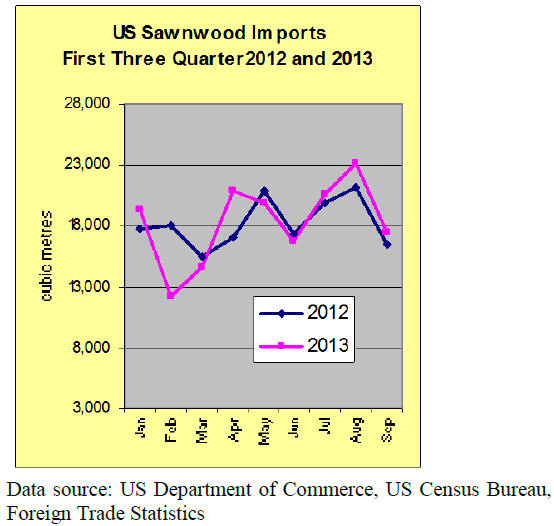
Tropical sawn hardwood imports were 17,443 cu.m. in
September, with year-to-date imports just 1% higher than
in September 2012.
Imports from almost all tropical suppliers declined, with
the exception of Ghana. Ghana‟s exports to the US were
1,316 cu.m. in September, mainly due to higher shipments
of acajou d‟Afrique (855 cu.m.) and cedro (349 cu.m.).
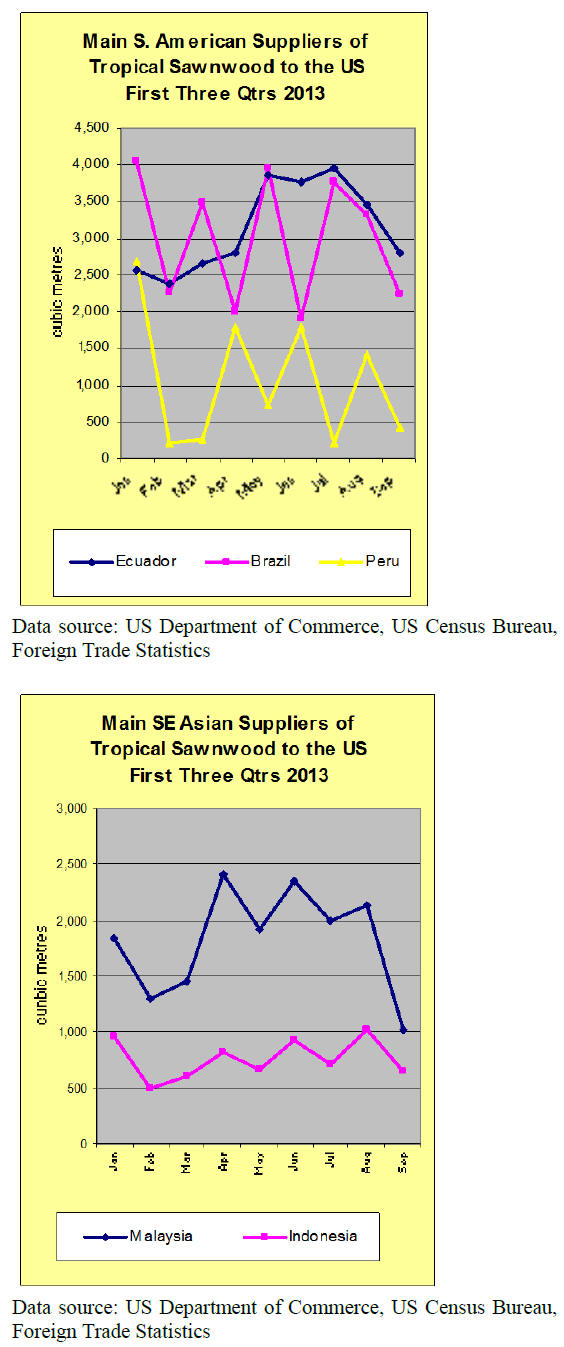 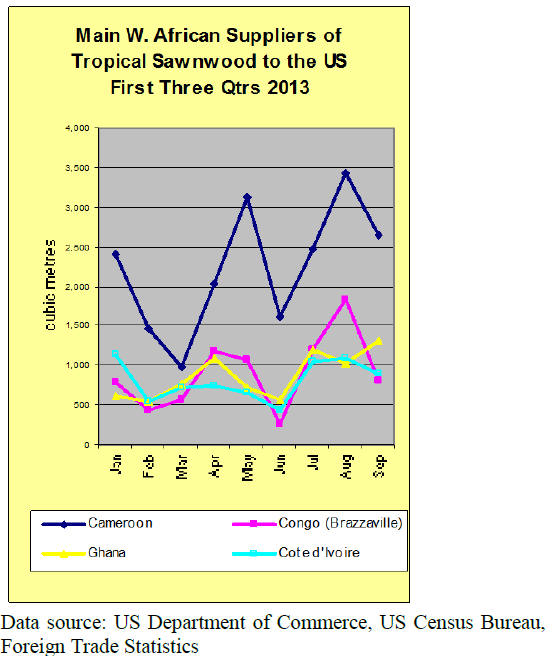
Overall acajou d‟Afrique imports decreased in September
because of lower imports from Cameroon (361 cu.m.) and
Cote d‟Ivoire (486 cu.m.).
Mahogany sawnwood imports were 1,639 cu.m., up 55%
from August and almost a quarter higher than at the same
time in 2012. Guatemala is the largest supplier and
shipped 945 cu.m. to the US in August.
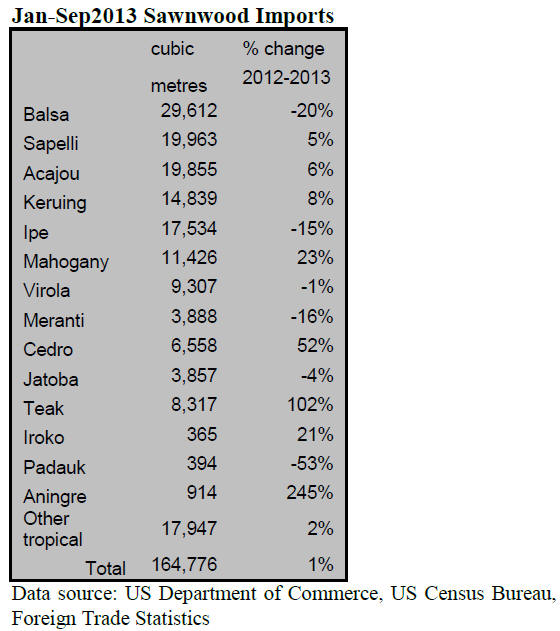
Year-to-date mahogany imports from Guatemala more
than doubled from 2012.
Other Pacific Islands and Mexico also supply mahogany to
the US market, although volumes from Mexico have
dropped by 28% compared to last year.
Canadian tropical imports up 9% from 2012
Canadian imports of tropical sawn hardwood increased by
9% from 2012, based on year-to-date imports in
September. The total value of 2013 imports were US$17.6
million.
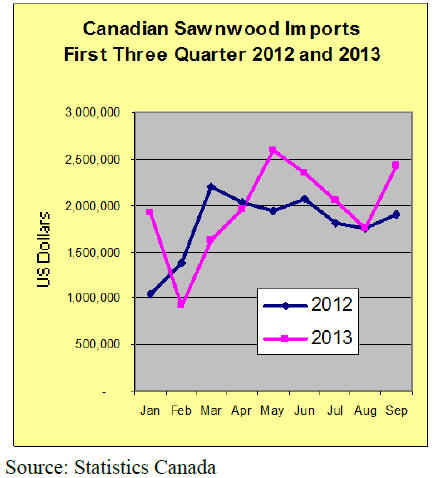
The Canadian market is close to one-tenth the size of the
US market for tropical sawnwood, based on 2013 import
figures. This is slightly lower than the population ratio of
the two countries. Flooring, furniture and other hardwood
processing industries are predominantly located in the US.
On the end use side, Canada‟s average home size is
smaller because multi-family housing is more common
than in the US, which reduces consumption of wood
products in both construction and interior finish.
During the recent recession, however, Canada‟s market
was more stable than the US and Canadian imports of
tropical sawnwood has remained remarkably constant in
the last ten years with only a relatively small decline in
2009 at the height of the recession.
Brazil has been the largest supplier of sawn hardwood to
Canada in 2013, followed by Cameroon, Ecuador and
Congo/Brazzaville. About 4% of total tropical imports
come into Canada from the US.
Imports from Ecuador have grown tenfold from the
previous year to US$1.4 million year-to-date in
September. Imports from Ghana have more than doubled
to US$948,000 year-to-date.
Imports are mainly sapeli (US$2.8 million year-to-date
September 2013) and virola, imbuia and balsa (US$1.8
million year-to-date September 2013).
National building standards to be changed because of
damage from recent storms
The National Institute of Standards and Technology
recommends developing standards that better protect
people and buildings from the powerful wind speeds of
tornados. Current US building codes take into
consideration hurricanes, floods and earthquakes, but not
tornados.
Some cities have made changes to their local building
code after experiencing devastating tornados, but there is
no basic minimum code on the national level for buildings
exposed to extreme wind speeds.
The Institute estimates that making buildings more
resistant to tornado damage would add 5-15% to the
construction cost of residential buildings and more for
commercial buildings. This month tornadoes in the US
Midwest caused US$1 billion in damage and killed eight
people.
¡¡
|